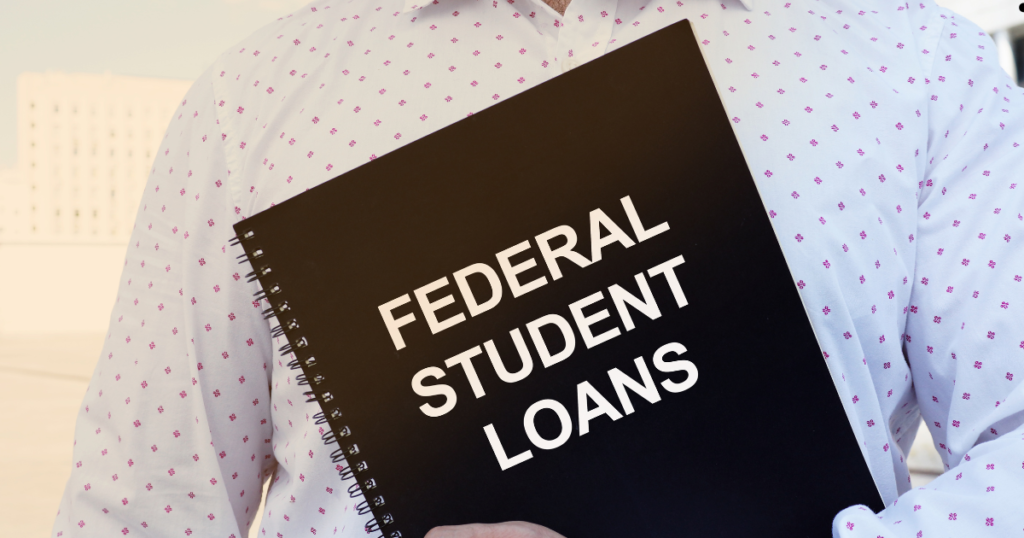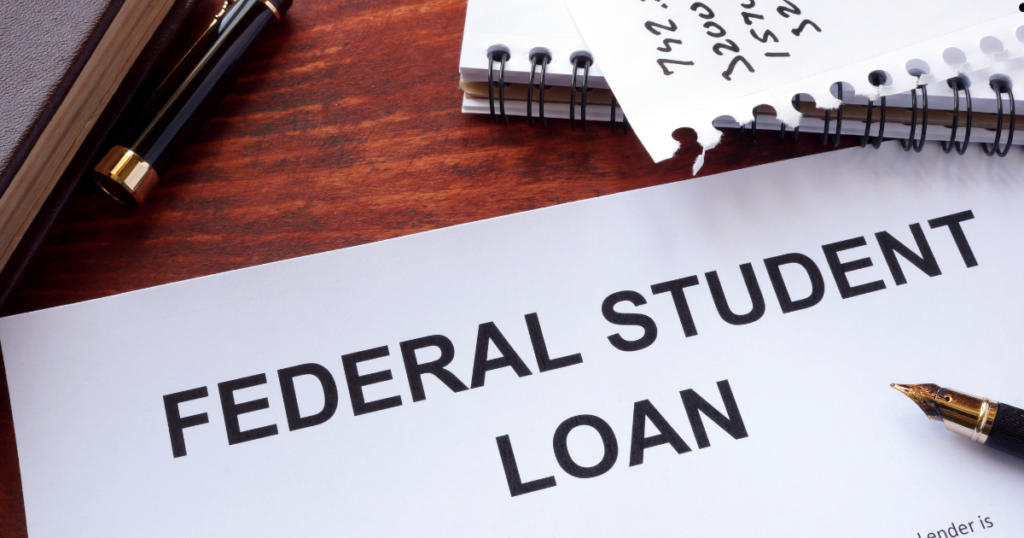When students begin exploring options to fund their education, they are often faced with a critical decision: whether to take out federal student loans or private loans. While both can help cover the cost of tuition, books, and other educational expenses, the differences between the two types of loans are significant. Understanding these distinctions is crucial to making an informed decision about how to fund your education while minimizing future financial burdens.
Among the key considerations, the main benefit of taking out a federal student loan instead of a private loan is the more favorable repayment terms, borrower protections, and flexible repayment options that federal loans offer. This article delves into these advantages and explains why federal student loans are often the better option for students seeking to finance their education.
Understanding Federal Student Loans

Federal student loans are provided by the U.S. Department of Education, and they come with several benefits designed to make borrowing more manageable and affordable for students and their families. These loans are typically offered to students with a wide range of financial needs and academic levels, including undergraduate, graduate, and professional students.
Federal loans are part of the federal student aid program, which includes grants, work-study opportunities, and loans. To be considered for federal loans, students must complete the Free Application for Federal Student Aid (FAFSA). Based on the information submitted, the government determines eligibility for various types of loans, such as Direct Subsidized Loans, Direct Unsubsidized Loans, PLUS Loans, and more.
In contrast, private loans are offered by banks, credit unions, or other private lenders. The terms and conditions of these loans vary widely and are typically based on a borrower’s creditworthiness and other financial factors.
Also Read: Which Type of Financial Aid is Considered Free Money?
The Main Benefits of Federal Student Loans Over Private Loans

1. Lower, Fixed Interest Rates
One of the standout advantages of federal student loans is that they offer fixed interest rates that are often much lower than those of private loans. The federal government sets these rates annually, and once a loan is taken out, the interest rate remains constant throughout the life of the loan.
In contrast, private loans often have variable interest rates, which means they can fluctuate over time. While a private loan may start with a low interest rate, that rate can increase over the years, leading to higher overall borrowing costs. Fixed rates on federal loans provide borrowers with predictability and stability, reducing the risk of interest-related financial stress.
2. Flexible Repayment Options
Federal student loans offer a range of repayment plans tailored to the borrower’s financial situation. One of the most significant advantages of federal loans is the option to enroll in income-driven repayment plans (IDR), where your monthly payment is based on your income and family size. Common IDR plans include:
- Income-Based Repayment (IBR)
- Pay As You Earn (PAYE)
- Revised Pay As You Earn (REPAYE)
These plans allow borrowers to make affordable payments, which can be as low as $0 if their income is below a certain threshold. Additionally, after 20 to 25 years of qualifying payments under these plans, any remaining loan balance may be forgiven.
Private loans, on the other hand, usually offer much less flexibility. Repayment terms are often set when the loan is disbursed, and they generally do not offer income-based options. This lack of flexibility can make private loans more difficult to manage if you experience financial hardship.
3. Deferment and Forbearance Options
Federal student loans provide borrowers with options to temporarily pause or reduce payments if they face financial difficulties. Deferment and forbearance allow you to stop making payments for a period of time without going into default. During deferment, interest on subsidized federal loans does not accrue, further reducing the financial burden on the borrower.
Private loans may also offer deferment and forbearance options, but they are typically less generous and harder to qualify for. Additionally, interest on private loans almost always continues to accrue during these periods, increasing the overall cost of the loan.
4. Loan Forgiveness Programs
Federal student loans are eligible for various loan forgiveness programs, which can wipe out part or all of your remaining loan balance after you meet specific criteria. The most well-known program is the Public Service Loan Forgiveness (PSLF), which forgives federal loans for borrowers who work in qualifying public service jobs and make 120 qualifying payments.
In contrast, private loans do not offer forgiveness programs. If you are considering a career in public service or a non-profit organization, federal student loans provide a unique benefit that private loans cannot match.
Also Read: Which Type of Financial Aid is Considered Free Money?
5. No Credit History Required for Most Federal Loans
Federal student loans, especially Direct Subsidized and Direct Unsubsidized Loans, do not require a credit check. This is a crucial benefit for many students who may not have established credit or who have a limited credit history. The primary criterion for receiving these loans is financial need, not creditworthiness.
Private loans, on the other hand, are largely based on the borrower’s credit score and financial background. If a student has a poor credit score or no credit history, they may need a co-signer to qualify for a private loan. Additionally, interest rates on private loans are often higher for borrowers with lower credit scores, making these loans more expensive in the long run.
6. Subsidized Loan Options
Some federal student loans are subsidized, meaning the government pays the interest on the loan while you are in school, during the grace period after graduation, and during deferment. This reduces the amount you owe after you leave school and helps keep your loan balance from growing.
Private loans do not offer subsidized options. Interest starts accruing from the day the loan is disbursed, and the balance can grow significantly over time, even while you are still in school.
7. Federal Protections and Consumer Rights
Federal student loans come with a number of borrower protections that private loans typically do not offer. These include:
- Grace periods: Most federal loans come with a six-month grace period after you leave school, during which you are not required to make payments.
- Death and disability discharge: If the borrower dies or becomes permanently disabled, federal loans can be discharged. Private loans may not offer this protection, leaving the loan balance to be paid by the borrower’s estate or co-signer.
- Repayment assistance: Federal loans offer various assistance programs, including options to consolidate loans or extend repayment terms to make payments more manageable.
Private lenders may offer limited or no such protections, and they can be less flexible in handling loan repayment under extraordinary circumstances.
Drawbacks of Federal Student Loans
While federal student loans offer numerous advantages, they do have some drawbacks. For example:
- Loan limits: Federal loans have annual and aggregate limits, which means that you may not be able to borrow enough to cover the full cost of your education, especially at more expensive institutions. Private loans, in contrast, may allow you to borrow larger amounts, depending on your creditworthiness.
- Origination fees: Federal student loans often come with origination fees, which are deducted from the total loan amount before it is disbursed. Private loans sometimes offer loans without fees, but this varies by lender.
Also Read: Which Type of Financial Aid is Considered Free Money?
Why Federal Student Loans Are Often the Best Option

For the vast majority of students, federal student loans offer better repayment terms, more flexibility, and greater borrower protections compared to private loans. If you are considering taking out loans to fund your education, it is usually advisable to maximize your federal loan options before turning to private lenders.
While private loans can sometimes be beneficial, especially for students who need to borrow more than federal loan limits allow, they should generally be seen as a last resort due to their higher interest rates, lack of borrower protections, and less flexible repayment options.
Conclusion
The main benefit of taking out a federal student loan instead of a private loan is the array of advantages designed to make repayment manageable and affordable for students. Lower interest rates, flexible repayment plans, deferment and forbearance options, and the availability of loan forgiveness programs make federal loans the most attractive choice for most borrowers.
Before committing to any loan, students should fully explore all their federal aid options and carefully consider their future financial needs. By choosing federal loans, students can protect themselves from many of the financial risks associated with borrowing for college.
FAQs
1. What is the main benefit of federal student loans?
The main benefit of federal student loans is that they offer lower, fixed interest rates, flexible repayment options, and borrower protections that private loans typically do not provide.
2. What are the types of federal student loans?
Federal student loans include Direct Subsidized Loans, Direct Unsubsidized Loans, PLUS Loans, and Perkins Loans. These loans differ based on eligibility criteria and borrower need.
3. Do federal student loans require a credit check?
Most federal student loans do not require a credit check, making them accessible to students with limited or no credit history. The exception is PLUS Loans, which do consider credit.
4. Can federal student loans be forgiven?
Yes, federal student loans can be forgiven through programs like Public Service Loan Forgiveness (PSLF) after meeting specific requirements, such as working in qualifying public service roles and making 120 qualifying payments.
5. Are private loans more expensive than federal loans?
Private loans are often more expensive than federal loans due to higher and sometimes variable interest rates. They also lack many of the repayment options and protections that federal loans provide.
